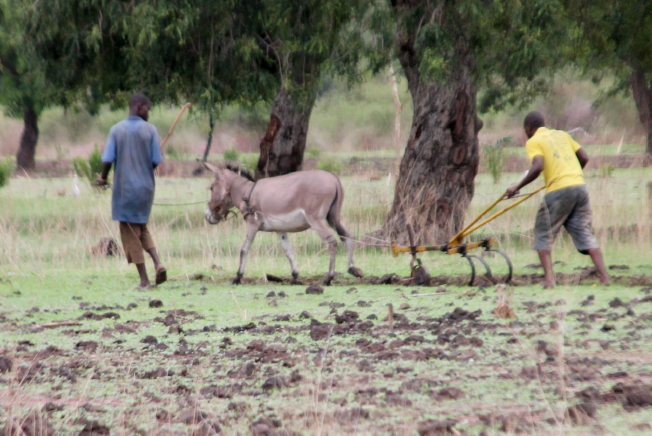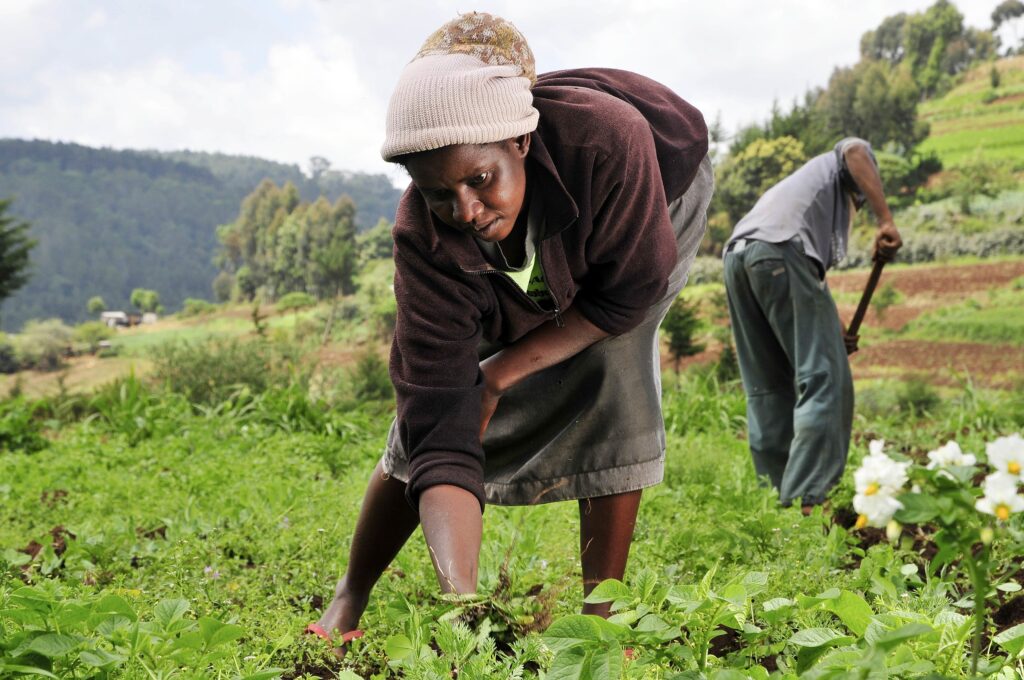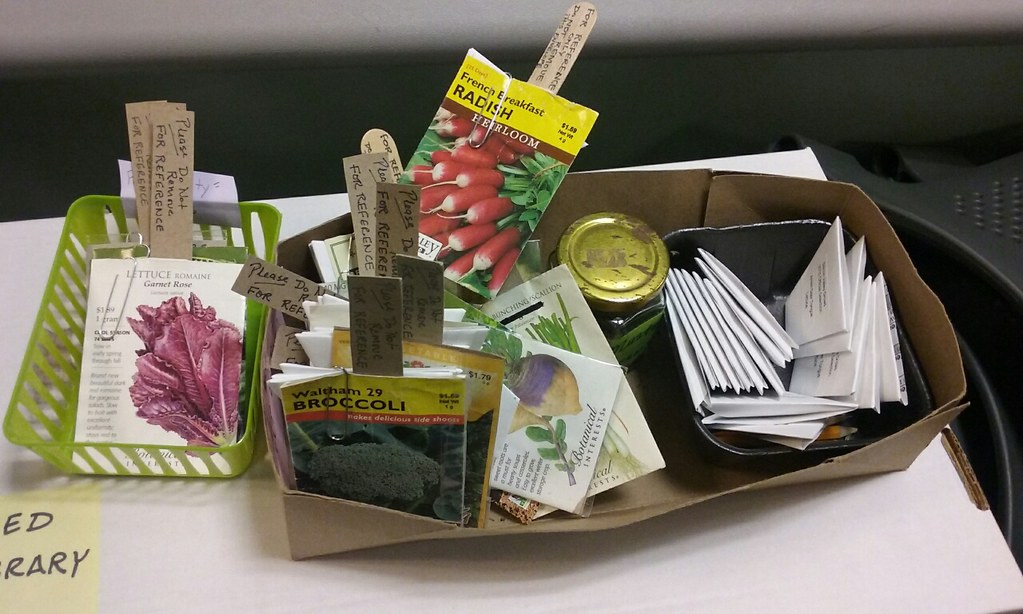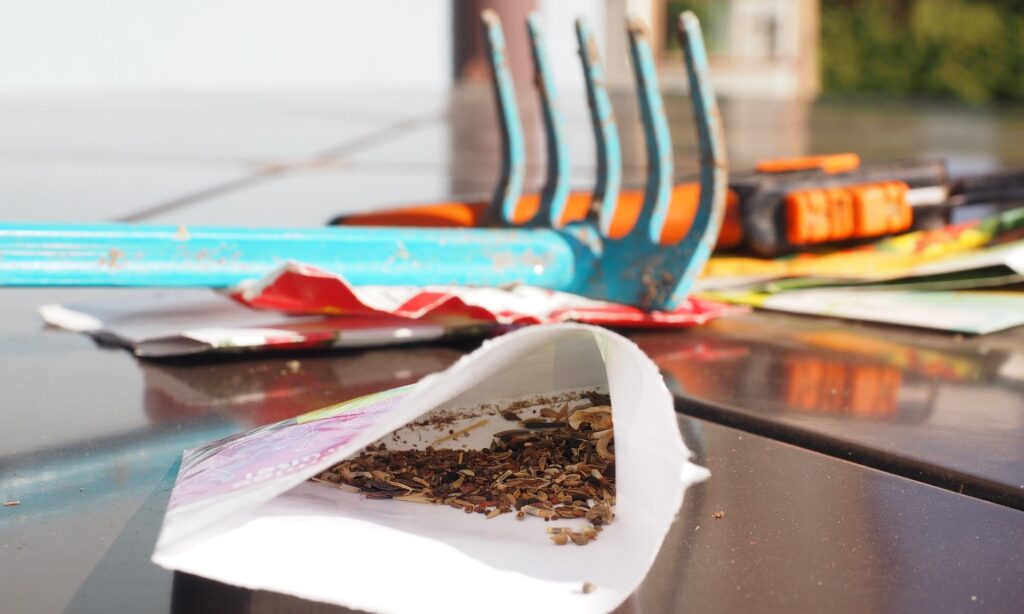Food insecurity is high in sub-Saharan Africa, especially in rural areas. In countries such as Liberia and The Gambia, many depend on family and community gardens. Sadly, it is becoming harder and harder for these rain-fed plots to succeed due to the many and varied effects of climate change. Seed libraries can help these gardens thrive and bring food into homes throughout The Gambia and sub-Saharan Africa.

Subsistence Farming and Climate Change
Nearly half of the food production in The Gambia is subsistence rain-fed crops. While irrigation is not unheard of, only 1% of harvested land in The Gambia uses irrigation.[1] Climate change is especially noticeable by these farmers, mostly women, who depend on subsistence gardens to feed their families and supplement their income, as the dry season has been increasing, while the rainy season is becoming shorter and shorter.
The increased climate variability, recurring droughts, flooding, and sea level rise since 2001 have led to crop failures and poor harvests.
– World Bank Group: A Look at Agriculture

Problems faced by poor farming households throughout sub-Saharan Africa include the lack of infrastructure, poor utilization of rural credit – while youths and women are both heavily involved in agricultural activities, they are also the least likely to receive credit – as well as seed availability. Changing weather patterns and other climate-related changes, such as seawater flooding further upriver in The Gambia, are a further hardship farmers face. Many who could once produce the food needed to sustain their families for a whole year can now only grow enough for a few months as crops wither in the fields as rainfall becomes more and more erratic.
Want to Know More?
Watch this UN video to learn more about the effects of climate change on Gambian farmers!
Crops in The Gambia
Groundnuts, rice, maize, millet, and vegetables are the biggest crops grown in The Gambia, most of which are grown for subsistence. There is little diversification throughout the sector.[2]
Between 2010 and 2016 [in The Gambia], yields declined by 36% for rice, 26% for maize, 18% for millet and 9% for peanuts, while yields of cassava and cashews increased.
– IFAD: The Future of Agriculture in The Gambia, 2030 – 2063
The effects of climate change – fluctuating temperatures, erratic rainfall, etc. – and disease can take an extreme toll when variety among crops is limited, as failure in one crop is more likely to be a widespread phenomenon that increases food insecurity and malnutrition. While greater variety among crops would create a buffer, identifying specific varieties to combat climate challenges, such as heat and drought, would also greatly improve local farmers’ probability of success.
Want to Know More about Food Production in SSA?
Check out this UNDP Publication! (downloadable PDF)
What Are Seed Libraries?
While you are probably familiar with the concept of a library and borrowing books and returning them once read, have you heard of a seed library? A seed library is much like any other library – seeds are “borrowed” then returned. When it’s time to plant, farmers can borrow seeds to grow, then after harvest they save seeds from some of the plants and return them to the library.
Want to Know More?
Check out this Gardening Know How article!

There are many benefits to seed libraries. They can alleviate financial constraints, for one. In The Gambia, for example, most seeds are imported. As prices continue to rise, the many families living in poverty are having a harder time affording seeds for their gardens. Seed libraries ensure a replenishing supply of seeds that works on an exchange basis rather than monetary. But more than that, a local seed library contains seeds for robust varieties that local farmers have succeeded in growing. As countries such as Liberia and others in sub-Saharan Africa contend with the varying climate changes, the lack of variety means widespread failure of crops due to difficulties like ongoing droughts, resulting in an ever-increasing food insecurity and multidimensional poverty. A seed library that contains varieties tolerant to heat, drought, and other climate challenges local populations are encountering will further improve the probability of a garden’s success. This will mean better food on a family’s table, more income for those women who sell excess, and better prospects for entire communities for the year to come.
Seeding The Gambia
Blackbird Global Foundation is putting together a seed library project that will provide nearly 400 communities in the Upper River Region with a library of relevant seeds. This will not only provide more abundant food, but will employ local women and build community among experienced and learning gardeners. And we won’t stop there! Once seed libraries are established in the URR, we will be extending them throughout The Gambia and sub-Saharan Africa.
You can Help! Every dollar helps us gather seeds and establish seed laboratories to determine which varieties are best suited to the Gambian climate. Donate Today and help us relieve food insecurity in The Gambia!
[1] https://www.fao.org/in-action/new-irrigation-strategies-gambia/en/#:~:text=The%20development%20of%20irrigation%20and%20drainage%20systems%20is,underground%20water%20resources%20available%20for%20drinking%20and%20irrigation
